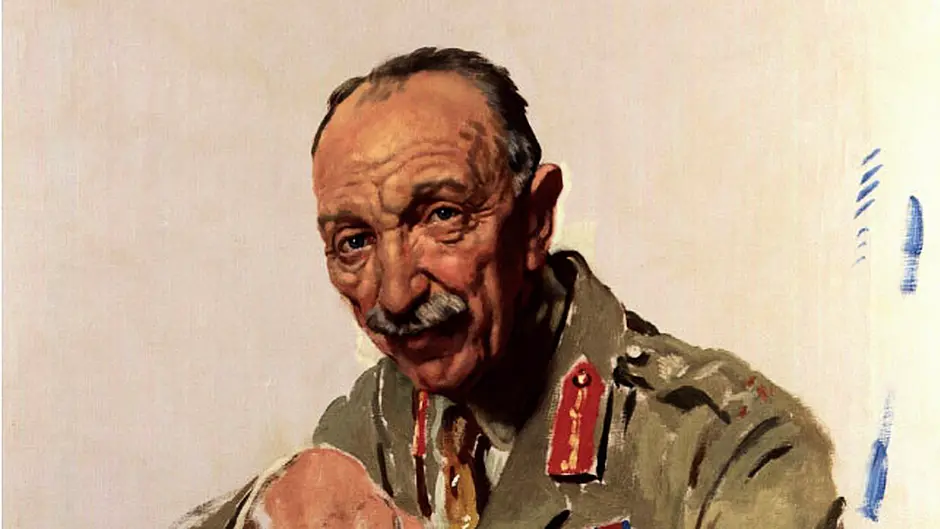Author Ronan McGreevy, whose book on the controversial event has just been published, examines West Cork’s links to an infamous London murder this month, 100 years ago
THE assassination of Field Marshal Sir Henry Wilson MP on June 22nd, 1922 happened on the streets of London, but was ‘made’ in West Cork.
This shocking event, the first assassination of a serving MP in Great Britain since the Prime Minister Spencer Perceval, enraged the British government. It blamed the anti-Treaty rebels who had occupied the Four Courts in April 1922.
On the evening of the assassination the British Prime Minister David Lloyd George sent an ultimatum to Michael Collins, then the chairman of the Provisional Government. He told Collins to clear the Four Courts or the British army would do it for him.
Six days later the National Army opened fire on the Four Courts with borrowed British artillery thus beginning the Irish Civil War.
Wilson’s killers were Reginald Dunne, the officer commanding the IRA in London, and Joe O’Sullivan whose father John was from Bantry and mother Mary from Inniscarra.
The order was given to Dunne by Dunmanway born Sam Maguire on the instructions of Michael Collins who held Wilson responsible for the pogroms against Catholics in the North. He also feared Wilson, the former head of the British army, was agitating for a reinvasion of the South.
In his application for a military pension from the Irish Government, Joe O’Sullivan’s brother Joe recounted their father was from an ‘old Fenian family’.
‘It was from him we learnt our love of Ireland and determination one day to fight her battles. Our house in London was always a place of call for any of the men on the run,’ Pat recalled.
‘Why bring my family into it, not to boast, no, but to help you form a true picture.’
Joe O’Sullivan was one of 11 children, six boys and five girls. The family settled in Little James Street in central London.
Five of the six O’Sullivan brothers, Joe and Pat included, served in the First World War. Joe lost a leg at Passchendaele in 1917.
The O’Sullivan family service in the First World War was such that initially the Home Secretary Edward Shortt suggested there could have been no Irish involvement in the Wilson shooting.
Pat swore Joe into the IRA and both participated in activities in London during the War of Independence.
The brothers and Dunne used their status as wounded Great War veterans with cockney accents to enter British army barracks undetected and steal weapons for the IRA.
In 1920 Pat moved to Cork to fight in the War of Independence and brought with him multiple weapons he had concealed in golf bags.
Joe travelled over to Cork during the War of Independence.
When the ferry arrived in Cork, a detachment of British soldiers asked O’Sullivan how he lost his leg.
When O’Sullivan told them he was a British war veteran, they gave him a lift in an ordnance lorry to where his brother Pat was staying. In his cork leg Joe O’Sullivan had concealed more than a hundred 0.450 cartridges for the IRA.
He should never have been involved in an assassination of such a senior figure, but he was available and volunteered for the job.
He and Dunne were captured in the immediate aftermath of the shooting, sentenced to death and hanged on August 10th, 1922.
Joe O’Sullivan went to the gallows believing he had done the right thing. In his last letter he wrote to his father: ‘The felon’s cap is the noblest crown an Irish head can wear.’
A cousin in Bantry wrote to him as he awaited execution. ‘It was a good day for Ireland the day yourself and your hero of a companion went out and laid the second Cromwell dead at your feet.’
His father John had no doubt, too, that his son had done the right thing. ‘It was done for the love of his faith and for Ireland. He removed a dirty Orange dog.’
Pat O’Sullivan spent the rest of his life seeking to vindicate his brother’s name and challenge those who maintained that Dunne and O’Sullivan acted of their own accord in killing Wilson.
In the 1960s he lobbied the British government to release the bodies of Dunne and O’Sullivan from the grounds of Wandsworth Prison where they were buried. His lobbying proved successful.
In 1967 the remains of Dunne and his brother were reburied in Deansgrange Cemetery in Dublin.








